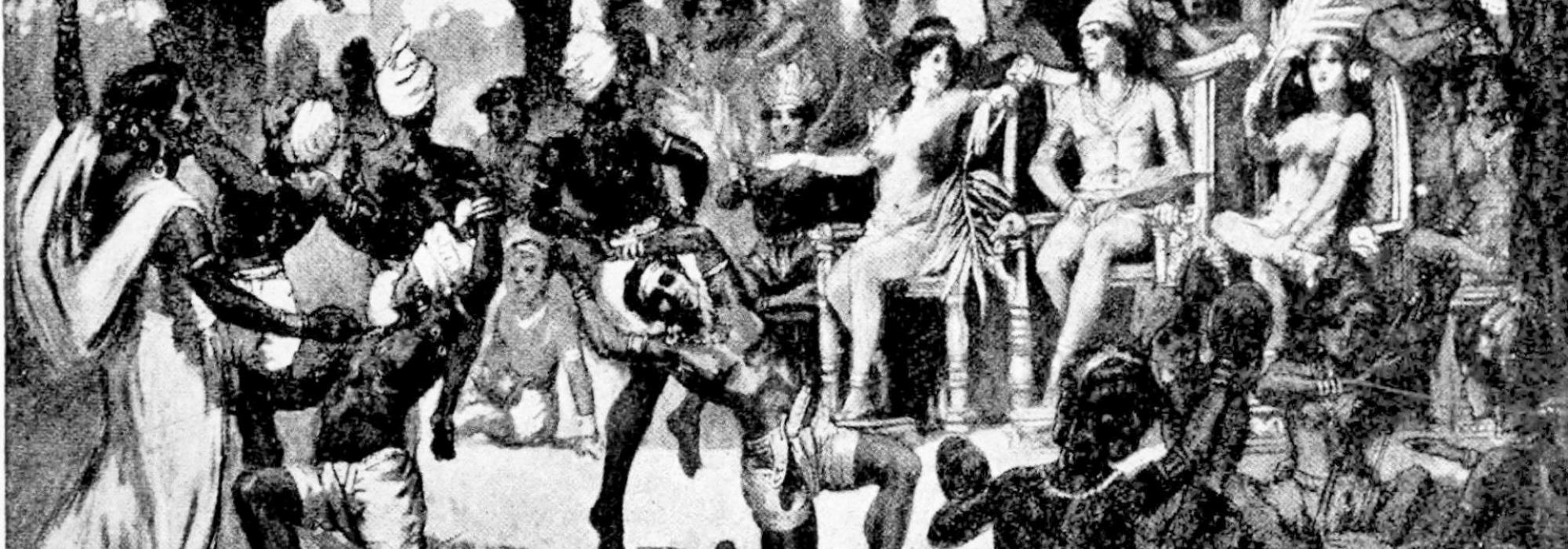Kautilya absorbed the best from the system of republics; he also brought back the ashvamedha conception of an empire. Both these conceptions have their roots in the Vedas. One must observe how broad and overarching the concept of yajna has been in the Hindu worldview. And one who is opposed to this broadminded concept of yajna is bound to face trouble. Philosophically, the inner yajna is superior to the external, ritualistic yajna but the former cannot exist without the latter. We need both. Our homes must be clean and decorated and our hearts must be pure and joyful. If either is missing, it won’t be right. For instance, in a great poetic composition, there is harmony between form and content.
At the level of structure, aspects like poetic meter, grammar, word usage, etc. make the composition beautiful. At the level of substance, aspects like rasa and dhvani make the composition rich with emotional content. This makes the poem both interesting and enjoyable. One cannot separate the two. In the case of music, various factors like sweetness and timbre of voice, adherence to pitch, periodicity of rhythm, evoking emotion with tonality, delineating characteristics of the raga, and innovation in manodharma are unopposed to each other and inseparable from each other. But when this comes under the purview of an academic study, discussion, or analysis, they can be seen and examined as different components. Again, when they move back into the realm of experience – i.e. when we are driven by ‘feel’ – they become one again. So it is with the case of governance. It was the genius of Chanakya that showed it to us. And to bring it all into practice took the unstinting effort of Chandragupta Maurya.
It is because of this harmony between seemingly opposing elements in statecraft that Chandragupta Maurya was able to build a massive empire. In order to do so, he had to strategize and counter-strategize a great deal, the details of which are brilliantly portrayed in plays like the Mudrarakshasa (of Vishakadatta). In sum, what do we learn from these numerous strategies and counter-strategies? For the sake of dharma, for the sake of the larger good, for the sake of lasting welfare, one has to adopt some unfair practices and use some immoral methods. But one who undertakes this must necessarily be selfless and intelligent. This is the path shown by Krishna in the Mahabharata.
In Kautilya, we see a continuation of Krishna’s statecraft. And the next time we see this in India is about two thousand years later, in the Vijayanagara Empire. And in the years in between, we haven’t seen this markedly. Perhaps during that period, such stratagems were not particularly necessary. What Krishna finds inevitable in the Mahabharata: “Niti is lower than Dharma; there are times when we have to give a secondary place to niti in order to uphold dharma,” we see in Kautilya as well. The treasury must be filled and the kingdom must be financially prosperous – “कोशवान् राजा” – is what the shastras say. But how to become wealthy as a kingdom? In all such matters, what Kautilya shows us time and again is the following: “Too much of uprightness is not useful. Mere trickery is also useless. We have to find a middle path and tread that.” Later, Kalidasa captures this aphoristically in Raghuvamsha: “कातर्यं केवला नीतिः शौर्यं श्वापदचेष्टितं” (RV 17.47). Punishment has its own value, fear has its own value. When such a statement is made, one might immediately begin to protest by saying that in the modern world there is no limit to crime and deceit. Even to be able to have the luxury of thinking very idealistically, we need to have a stable reality.
We should never expect from others the good that we cannot do. And if they do good, we must consider it a blessing and not expect them to continue to do it. It is only when they have taken the resources and the authority from us that we can have such expectations. Kautilya says up front in his Arthashastra: “कृत्स्नं हि शास्त्रमिदमिन्द्रियजयः” (AS 1.6.2) – the sole aim of learning all branches of study is for the king to win over his sense organs. The entire running of the kingdom depends upon the unselfishness of the king.
A person of authority who is selfless and controlled in senses might commit—in the eyes of the world—a ‘violent’ act and sometimes he has no other choice. Such acts cannot be committed after announcing to the people about it. Even today, in a democracy as large as ours, we have the ‘oath of secrecy.’ What does it mean? Where is the transparency? But not a single minister enters the cabinet without taking an oath of secrecy. A prime minister cannot be a prime minister, a president cannot be a president, and nobody can hold any position of power or authority unless they take the oath. As per law, any person invested with authority is bound to keep state secrets to himself. Is it possible to expose to the public all details about the army, foreign policy, economy, or things that are generally kept confidential? And if not, isn’t this secrecy a form of deceit? Perhaps it is. However, it is keeping in mind the larger welfare of the people. It is only when we see through this lens we will realize the greatness of Chanakya’s pronouncements and see the feasibility of his suggestions.
To be continued.
Translated from the original Kannada by Hari Ravikumar.

















































